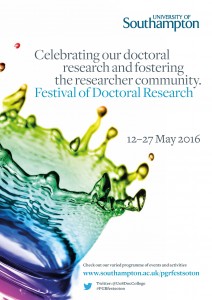By Dana Thomson and Dan Devine
Dana Thomson (Social Stats & Demography) and Daniel Devine (Politics & International Relations) – looked at creating a visual representation of the overlap of datasets and quantitative terminology, across disciplines that apply social statistics, to identify where research gaps are and where there is room for more collaboration.
Our contribution was motivated by our experience in a class together; we both took statistics, but coming from different disciplines (political science and public health), we used different terminology for the same techniques, leading to unnecessary confusion and problems in dealing with the course. Our initial thought was to create some form of ‘dictionary’ or reference tool to iron out these issues, but we soon expanded into the area of survey research. We were interested in what similarities and differences there were in both methodology and data collection, and who (if anyone) has successfully combined the two.
